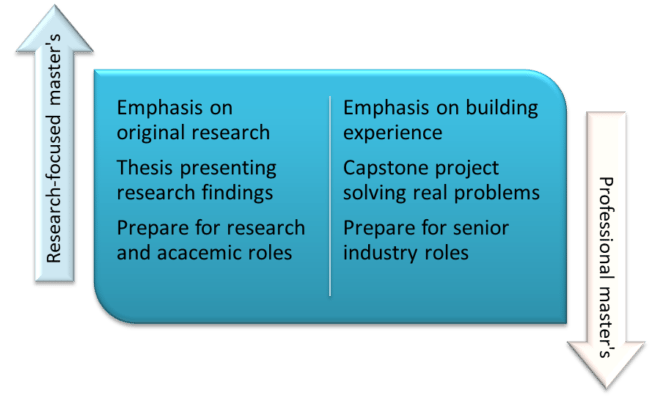If you’re wondering whether graduate school is right for you, then you might want to think about what you want from your engineering career. One of the top reasons engineers earn master’s degrees is to open doors to professional roles that they otherwise would not be able to attain. A graduate degree could be the solution if you want to become a leader, work in academia, do cutting-edge research or climb to the top of your field in industry work.
 IMAGE SOURCE: Pixabay, public domain
IMAGE SOURCE: Pixabay, public domain
Management Roles in Engineering
Engineering managers are among the highest paying positions in the field of engineering, with a median salary of $137,720, according to the United States Bureau of Labor Statistics (BLS). Strictly speaking, a graduate degree isn’t necessary for all management positions in engineering. Some engineers with a just a bachelor’s degree manage to work their way up to leadership roles, but they may need many years of experience to do so. However, graduate degrees in management are becoming popular among aspiring engineering managers who need business or technology skills beyond what they learned as undergraduates.
Engineering managers take several different paths to a graduate education. Some focus on developing business management skills by earning a Master of Business Administration (MBA) degree or a master’s degree in engineering management (MEM or MsEM degree). These programs cover topics such as financial management, accounting, quality control, engineering economics and industrial and human resources management, the BLS reported. Other engineers are more interested in managing technical areas of engineering and pursue a master’s degree in technology management (an MSTM degree), which includes studies in project management, operations management, production management, quality control, computer applications, statistics and health and safety issues, according to the BLS.
The main difference between master’s degrees in engineering management and MBA degrees is that engineering management programs are more specialized.
Working in Academia
Going to graduate school can help you attain an engineering position at a university, but you must earn the right kind of master’s degree. There are both research-focused and professional master’s degrees available in the field of engineering, according to U.S. News & World Report. A research degree program that includes a thesis requirement is a good choice if you wish to work in academia, instructing students and working in research, the BLS reported. However, you should know that some top research roles – in university settings and otherwise – require a doctoral degree.
Engineering careers in academia include tenure-track and non-tenured instructor as well as non-faculty staff and administrator positions.
Research Roles in Engineering
If you want to work in research and development, there’s a good chance you will need to go to graduate school. An undergraduate degree program simply can’t cover all of the fundamental concepts and applications of engineering plus allow for hands-on design and work experience through laboratory and fieldwork and still cover the advanced studies needed to work in engineering research. The research-track master’s degree programs that prepare engineers to work in research and development roles in industry or academia are often intensive.
In a research-focused master’s degree, students must often prove that they are worthy of the degree by writing a graduate thesis that reports on their original research in the field.
Senior Engineering Roles
Some engineers don’t want to work in research or academia. They’re not necessarily eyeing leadership positions. They just want to enhance their professional knowledge and improve their opportunities to work on more complex and fulfilling projects. These students can benefit from pursuing a professional, rather than research-based, graduate degree.
In these programs, the focus is on cultivating experience. In fact, many professional master’s degree programs in engineering are offered in conjunction with industry partners or sponsors. Instead of conducting original research and writing a lengthy report to present their findings, students in a professional graduate degree program often complete a capstone project that requires them to solve real industry problems.
Unlike applicants for research-based master’s programs, applicants for professional graduate programs are often judged on work experience rather than GRE or GMAT test scores.
Why Earn a Master’s Degree in Engineering
There are many benefits of earning a master’s degree. If you aspire one of these jobs that require advanced studies, enhancing your career opportunities may be your main reason for going back to school. However, there are other benefits of earning a master’s degree in engineering.
In certain disciplines of engineering, a graduate degree can raise your salary by as much as nine to 13 percent, according to the BLS. Graduate degree programs offer great networking opportunities that allow you to develop relationships with fellow students, mentors and industry partners. Of course, many engineers have a natural curiosity and thirst for knowledge. Having the opportunity to learn new skills and keep up with the latest technological developments can be as personally rewarding as it is professionally beneficial.
The engineering careers where a master’s degree makes the biggest impact on salary include engineering manager, mechanical engineer and civil engineer, the BLS reported.
Related Resources:

